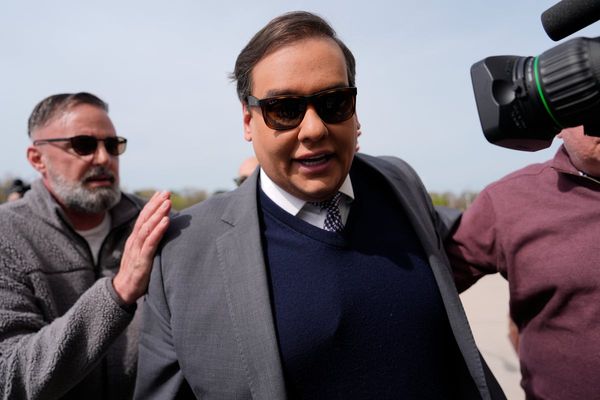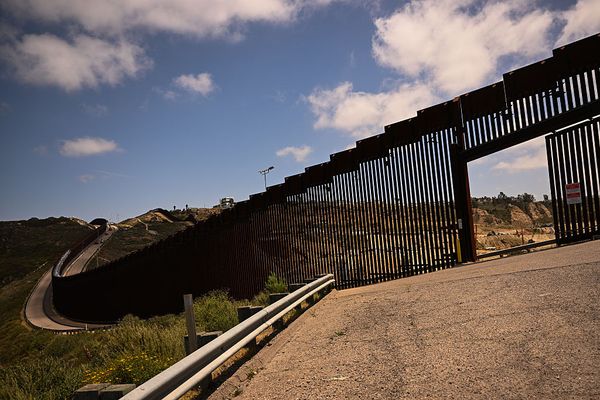When Wales huddled on the Stade de France pitch at the end of a seemingly endless 2023 Six Nations, there was a slight sense that it was the end of an era.
Much of the talk in Nice the previous week had been about how this was the final Six Nations ride for many.
However, while there was the expectation that a handful of players who had helped Wales deliver unprecedented success in the tournament over the past decade would be taking their Six Nations curtain call, there was also the understanding that all would likely be back in France later this year for the World Cup.
Yet, of the 15 that started in France, there are already five who won't feature in the World Cup this September. Four of those were in the forward pack which took on the French. Those four alone possessed 389 caps between them.
Since Warren Gatland named his wider training squad, Alun Wyn Jones and Justin Tipuric have announced their international retirements, while Ken Owens has been ruled out of the tournament through injury. Wyn Jones, who started on the loose-head in Paris, was omitted entirely from Gatland's wider World Cup squad.
Rhys Carre, Cory Hill and Josh Macleod all made the training squad, but for varying reasons they have each left the squad since the start of May, taking a total of 54 caps with them.
Then there are the likes of Josh Navidi, Leon Brown and Ross Moriarty. All three, at one point or another in the last year, might have been expected to play a part in France. Granted, Navidi and Brown might never have made it given their injury problems - with the former opting to retire from a neck injury picked up in South Africa last year, while Moriarty opted to withdraw himself from contention after a move to France. But they themselves account for 110 caps.
All of a sudden, Wales have lost 553 caps of experience in their pack which they could arguably have expected to feature in France later this year.
Of the 26 forwards remaining in the squad, there are just 596 caps between them. For context, the entire starting pack which took to the field in France at the end of the Six Nations had 636 caps combined.
In fact, all of Wales' forward packs in the 2023 Six Nations had a combined caps total of at least 440, except the Wales pack against Scotland when Gatland opted for youth with just 237 caps packing down at Murrayfield.
It's a remarkable swing and speaks volumes to where this Wales squad has largely been for the past few years. For a long time, a large number of players have sat at either end of the experience spectrum: either boasting a large number of caps or very few at all.
Gatland has made reference to this since returning to become Wales head coach for a second time, although he did pick a lot of those experienced forwards on the Lions tour in 2021.
Ideally, Wales would be heading into this World Cup with a pack of forwards all around the 50-cap mark. Not too young, not too old, just right: the Goldilocks balance.
That's not really the case, though. Instead, Wales are now heading into the World Cup in France with a very green pack. Just four players have reached a half-century of caps: Dillon Lewis, Tomas Francis, Dan Lydiate and Taulupe Faletau. Another three, Elliot Dee, Nicky Smith and Adam Beard, are above the 40-mark. Six of the forwards are uncapped and 14 altogether have less than 10 caps.
Right now, the most experienced pack Wales could name would have 402 caps. The least experienced, unsurprising given the number of uncapped players in this squad, is 16.
Realistically, if you're looking at the most likely forward pack going into the World Cup, then it remains feasible that the starting eight will share fewer than 300 caps between them.
The second-row pairing of Beard and Will Rowlands seems well-placed to be relied upon to start, especially given the losses in the position to date. Between them, they bring 69 caps but in truth there is probably more experience than meets the eye given Beard's time as vice-captain and Rowlands' late arrival to Test rugby.
The other second-row options remaining in the squad all are in single figures when it comes to caps.
Lock is perhaps the easiest part of the squad to predict, with Beard and Rowlands having looked settled under Wayne Pivac before former captain Jones came back into the side.
In the front-row, Gareth Thomas and Tomas Francis seem most likely to start based on the Six Nations, with the pair having 92 caps between them.
But it's the likely starting figure of Dewi Lake in the middle of them which offers one of the more interesting possible changes in Wales' pack. Two-time Lions tourist Ken Owens captained Wales during the Six Nations and has won 91 caps for his country. Lake, to date, has just eight caps. However, such is his style of play, you get the sense he might bring the fearless nature that Wales need.
Moving into the back-row, Faletau and his 100 caps will almost certainly start. Who starts alongside him is the big question.
The likes of Lydiate and Aaron Wainwright offer some experience, but the reality is there will be at least one member of the back-row with less than 20 caps after Tipuric's Test retirement. Taine Basham is currently the most experienced openside with 11 caps, while Jac Morgan and Tommy Reffell both have nine.
Given the importance of Morgan, it's easy to imagine Gatland choosing to partner him with Reffell. Were he to do that, the combined caps in the pack would sit at 287: more than the youthful starters in Scotland earlier this year, but still relatively light on experience compared to recent Welsh packs.
That's not necessarily a bad thing, though. When you look at the individuals, all have proven themselves at Test level or at least shown themselves capable of doing so at some point. Perhaps having the likes of Morgan, Lake and Reffell thrust into starting positions is just what Wales need heading into this tournament after a year of turmoil.
Meanwhile, the backline has been affected a little but not as much. The retirement of Rhys Webb and the unavailability of Joe Hawkins means there are going to be changes to what appeared to be the first-choice scrum-half and inside centre at the end of the Six Nations.
But, given Webb hadn't been involved in Test rugby for a while and Hawkins only had five caps, whoever comes in isn't exactly a new face. A 9-10-12 combination of Tomos Williams, Dan Biggar and Nick Tompkins was an often-run one throughout 2022 and both Williams and Tompkins boast more caps than Webb and Hawkins.
Some might make the argument that the backline is waiting for the push to move towards the next generation like the forward pack has quite abruptly had in recent months.
The average cap profile of the backs division isn't atrocious, but there are position where it's a little feast or famine in terms of experience or a lack of it. However, if Gatland is to shift the dials behind the scrum, it will likely have to be his own decision rather than anyone else's given the lack of withdrawals in that part of the squad.
Maybe that would be a little risky, dispensing with the old heads in the backs after losing so many up front. But there feels like there's an onus on Gatland to be bold in the face of limited expectations and obvious inexperience within the squad.
The spine of the team has changed, but there remains a decent thread of experience running through it.







